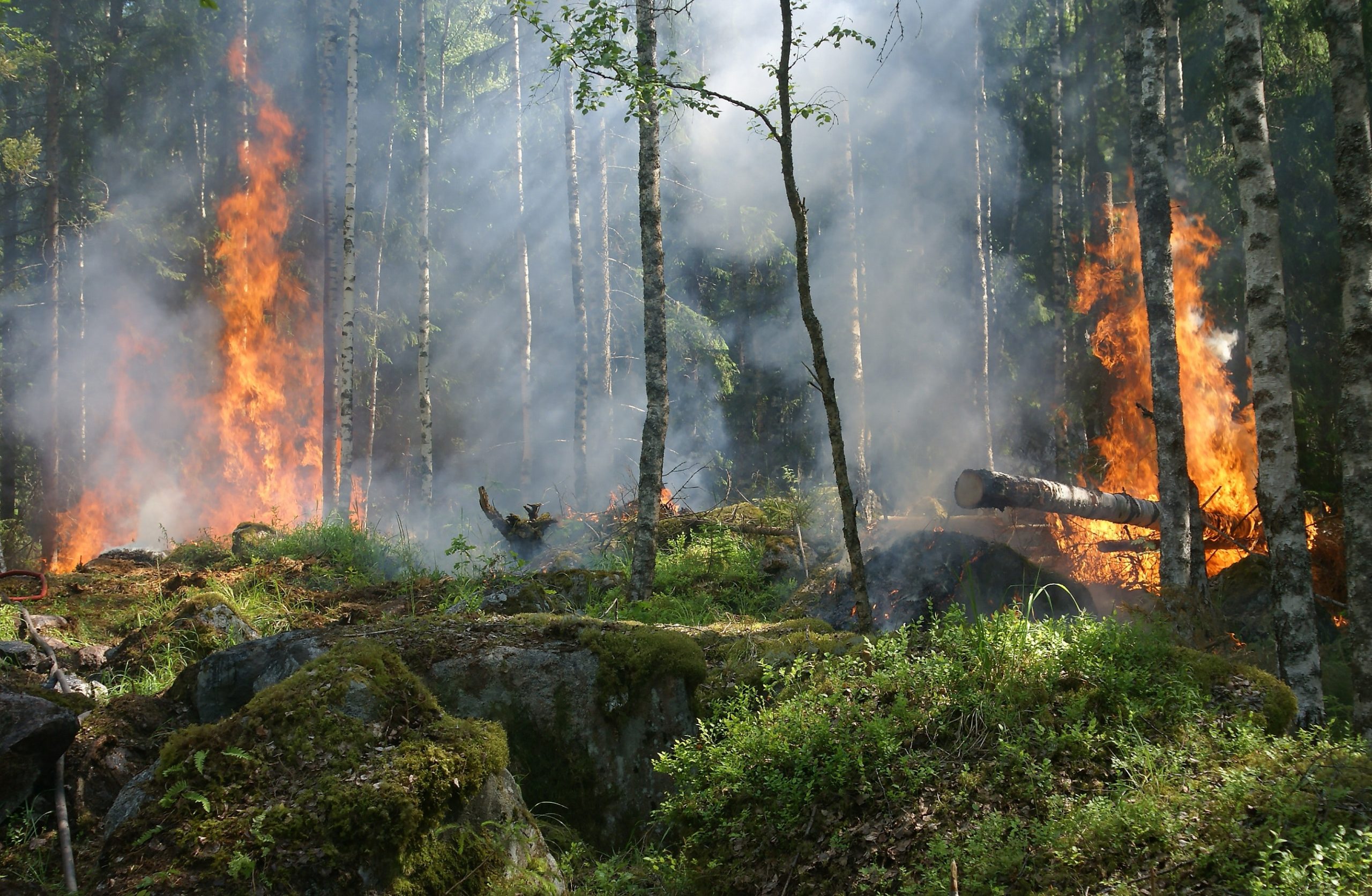W. Schwartz*
Abstract: Fire is irreversible—an entropic release that scatters and disorganizes aggregate pockets of life, fuel, and resources. In fighting wildfires, forest managers attempt to scorch borders of death into the planet so that onrushing blazes have nothing left to burn. This article suggests that such tactics reflect a far-right political ecology which has come to terms with the limits of material resources (and thus perpetual economic growth). A far-right environmentalism has broken from the myth of endless growth propagated by mainstream economics. While this myth has been critiqued on the left for over a century in efforts to halt its deleterious social and environmental effects, the far-right response is quite different. Rather than halt the pursuit of perpetual growth, far-right sentiment, as expressed by the 2019 eco-fascist mass-shootings and popular right-wing media, attempts to burn a path for continuous growth by searing exclusionary borders between the present and future.
Keywords: Geocolonialism, Temporality, Capitalism, Eco-fascism, Political ecology
Introduction
Backburning is a strategy employed to contain wildfires like those that swept Australia, the Amazon, Siberia, Alaska, and California in 2019. This strategy entails scorching the land in the path of a wildfire so the approaching blaze has nothing left to burn. The fire’s future trajectory is rendered lifeless and barren—fighting fire with future. The temporality of this practice, in which borders of death are constructed around islands of capital accumulation, serves as a useful platform for considering a political ecology of the far-right, particularly its relation to the future. A growing sentiment has emerged on the right that uses the rhetoric of environmental preservation and futurity to enact violent exclusions in the present. I trace this sentiment to a geothermal colonialism that pursues growth through death. At stake in these considerations are multiple foreclosures of space and time. When and where do humans “belong” and which humans are empowered to adjudicate this cartographic alchemy? Just as wildfires are contained by creating backlines of inorganic death, far-right neonationalism scorches borders into the earth upon which to impose exclusions.
This Future is a Pipe Bomb
Popular environmental movements (stemming from the left) misinterpret the temporal motivations of far-right ideology concerning the entwined matters of ecology and justice. A common refrain posits that the right (be it neoliberal, neoconservative, or neonationalist) disregards the future in favor of present comforts (or nostalgic glory). Pollute, overfish, mine, and deforest without compunction because these practices generate immediate returns, despite endangering or depleting future access to resources and livable environments. Conversely, a left-environmentalism often argues for a nominal sacrifice or deferral of material comforts in the present for the sake of the future (don’t eat that hamburger, turn off the air-conditioner). Perhaps it is worth reconsidering the terms of this traditional framing.
Environmental injustice and exploitation of vulnerable populations occur in the present—it happens now. The rapacious transformation of environments into commodities does not cause future violence; it causes present violence. Rather than a retrogressive agenda seeking a return to “good old days,” far-right movements (as with all stripes of colonialism) are future-oriented. They seek to perpetuate and secure future conditions conducive to the asymmetric growth of wealth, rendering the future private property—a gated community. That is, the right seeks to forge a future in which a select few maintains exclusive (at best) or privileged (at least) access to the capacity to grow wealth exponentially. The right is not sacrificing or neglecting the future for present pleasures, rather it exploits the present and its peoples so wealth can continue to grow exponentially into a future.
When Chevron spends $54 billion on a gas extraction project off the coast of Australia this is not because they value present material comfort above all else (Klein, 2015: 145). It is a fifty-year plan to ensure they will control energy markets in 2070. The future is building itself (capital’s profits) from the resources of the present (Land, 1993). The performance of capitalism mandates that wealth is greater in the future than the present. This comes at the cost of present populations. The forces contributing to climate degradation are not stealing the future from the youth, but rather their present. Perhaps it is time to stop trying to save the future and start saving the present.
This status-quo practice of environmental spoliation for future gain has been practiced by mainstream right and left for nearly three centuries. A political ecology of the far-right, however, is distinguished from this status-quo by the growing awareness of material and ecological limits to perpetual growth—a break from moderate-right political economy. The climate change denial of the moderate-right, which cultivated the illusion that wealth could grow exponentially forever, is being eclipsed by a climate change disgust on the far-right that seeks to exclude access to the narrowing future based on cultural markers (religion, ethnicity, race). Visibly, this manifests as a fear of climate-displaced non-white, non-Christian groups. The far-right is beginning to see the ugliness of global capitalism and the hardships it causes, but rather than condemning capitalism they condemn its victims. Rather than cease the environmentally damaging injustices of capitalism, the far-right has imagined a fictional tribal war over scarce resources centered on exclusionary discrimination.
The Greening of Hate
This sentiment of exclusionary violence most painfully irrupted in the 2019 mass shootings in El Paso and Christchurch. The El Paso shooter’s manifesto reads: “Corporations are heading the destruction of our environment by shamelessly overharvesting resources…If we can get rid of enough people, then our way of life can be more sustainable.” Sadly, this young man was willing to end the lives of twenty-two in order to preserve a “way of life” predicated on “shamelessly overharvesting resources.” The logic here assumes the shameless behavior is so inevitable that it makes mass-murder a selfless act performed to allow the shamelessness to continue. The perpetrator admits that the colonial “way of life” is shameless, yet violently defends it. This act was performed to help secure a future in which the naturalized overharvesting of resources remains feasible. While certainly perverse, this was a far-right attack (on the present) intended to make a better future. The far-right is not neglecting the future, it is trying to entrench inequality and the devaluation of life—conditions normalized under colonial capitalism—into the future.
A somewhat softer (but no less violent in implication) version of this ideology is promoted by Fox News host Tucker Carlson who claims immigration is destroying the environment. They point to the material detritus (water bottles, food wrappers, etc.) that follows all humans forced to consume commoditized foods (including Carlson), noting the aesthetic and ecological damage caused by this litter. The jaw-dropping hypocrisy of this sentiment is clear. Damage to local ecosystems by border wall construction has been far more irreversible than any litter (Hennessy-Fiske, 2020). And to the concern with plastic rubbish defiling the cleanliness of America’s nature—the production of consumer goods for U.S. citizens causes far more pollution in Latin America than the litter of migrants at the border (Grineski et al., 2010).
These hypocrisies are inspired by a confused conflation of immigration and over-population. The idea that over-population is an environmental problem is a stance that, while fiercely contested and robustly disputed (Kallis, 2019), has lingered in environmental discourse for much of the past two centuries. The “environmental problem” of over-population is actually an over-production problem of the G-8 way of life, not the amount of humans living on the planet. Carlson’s rhetoric suggests that climate and environmental degradation can be contained by national borders—if we funnel ten million people into Ciudad Juarez climate change will stop at the Texas border. Like the scorch borders that contain wildfires, Carlson’s suggestion is that scratching out lines of death along the border will prevent the movement of climate-induced devastation.
Population movements and the borders that impede them stand as the most terrifying obstacle toward just and humane climate transitions. It is here the far-right is engaging climate change. Underlying the political ecology of the far-right is an explicit argument that some people (privileged wealth accumulators) should maintain access to a vast surplus of resources while those from whom much of this wealth was extracted remain violently excluded. The Christchurch shooter’s “white genocide” is a merely a fear that colonized populations may be able to share in the resources of the future. This ideology is premised on a geocolonial notion of borders as “natural” divisions of human groups and circuits of discrimination.
Burning Geology
The movement of wildfires across Australia and migrants through Central America are both socio-climatic events. Far-right environmentalism recognizes this in a manner that most moderates do not. Tragically, the far-right also equates displaced humans with destructive geological forces like wildfires or hurricanes. In A Billion Black Anthropocenes or None, Kathryn Yusoff (2018) maps this geologization of life onto the inextricable relationship between geology and colonialism. She suggests that parsing the world into various abiotic minerals and stratigraphies is directly and indirectly implicated in manifesting the present climate crisis. Tangibly, geology has cultivated the know-how needed for the massive extraction and combustion of fossil fuels. More insidiously, geology’s epistemology views the world as a spectrum of exploitable materials. That is, under Geocolonialism, the cheap labor of coal and petroleum exists on a continuum with the cheap labor of black and brown bodies. “Oil was literally conceived as a replacement for slave labor” (LeMenager, 2014: 5).
Yusoff stops short of coining the neologism “inAnthropocene” to denote the current era of dehumanization and inhumanity. As discourses on the Capitalocene or Plantationocene (Haraway, 2015) demonstrate, it is misleading to assert that climate crisis is caused by humans. Rather, it is the propensity to see humans as non-human materials (composites of minerals, organs, muscles) that underwrites the behaviors contributing to climate change. This capacity for geologizing is extended to non-human life and ecosystems as well—seeing cows as calories or forests as furniture. No life can escape this violence; it engulfs exploiter and exploited. As mere conglomerates of carbon, exploiters cannot feel guilt and the exploited cannot suffer. Far-right political ecology does not recognize suffering as an actionable phenomenon, but merely a subjective delusion of misaligned minerals. Rocks do not empathize. Geologization constructs the present world as a spectrum of exploitable materials for abetting future growth of wealth.
While Yusoff’s polemic addresses geology, similar accusations could be directed at thermodynamics. The domestication of combustion (epitomized by the steam engine) unleashed a complementary epistemology which views the manipulation of energy as the primary goal of humanity. For nineteenth-century physicist Sadi Carnot, “the steam engine embodies…the distinction between civilization and savagery” (Gold, 2012: 129). More explicitly, anthropologist Leslie White (1959) famously equated energy exploitation with “cultural evolution.” Far-right political ecology valorizes colonial distributions of power, seeing the exploitation of greater energies as the primary marker of human worth. The fueling of steam engines through the combustion of dead carbon (coal and petrol) reverberates poignantly with the backburning of wildfire containment. The fossil-fueled economy is burning backwards—burning the present to control the future; scorching the “subterranean forest” (Sieferle, 2001) to enable the transformation of present resources into future commodities. A “way of life” (capitalized exploitation) is created and controlled by a pyrosexual (Clark & Yusoff, 2018) synthesis of biopower and geopower.
Ferreira da Silva’s Black Feminist Poethics (2014) asks what to do with this “way of life.” Should those exploited and marginalized by this “way of life” aim to improve it or to end it? The El Paso shooter concluded that the only way to defend this “way of life” was to commit mass-murder. Though sometimes less apparent, from slavery to endless war, this “way of life” thrives on mass-murder—a way of death more than a way of life. Ferreira da Silva’s ethics of ending could be read alongside contemporary thinking in wildfire science, which has begun to question the scorch borders of backburning. One forestry service agent has suggested that trying to control today’s megafires is as futile as getting “in front of hurricanes with fans, trying to change their direction” (Petryna, 2018: 577). Equally futile may be attempts to ameliorate the “shamelessly” over-exploitative “way of life” violently defended in El Paso, especially with neoliberal policies like cap-and-trade. The looming political struggle over climate transitions will be between those who wish to end the dominant “way” of life and those who wish to end life.
Ring of Fire
Using an environmentalist vocabulary, the far-right is championing a colonialism from the future. That is, they are attempting to violently subdue the present on behalf of future profits that will only materialize if their way of life can be protected until the future is reached. The problem, of course, is that the future can never be reached by these far-right soldiers. The future is sealed off like a pristine geocolonial nature preserve. Surrounded by backburning scorch borders, an unbridgeable lifeless chasm separates now from then.
References
Clark, N. and K. Yusoff, 2018. Queer Fire: Ecology, Combustion and Pyrosexual Desire, Feminist Review vol. 118 (1), 7-24.
Ferreira da Silva, D., 2014. Toward a Black Feminist Poethics: The Quest(Ion) of Blackness Toward the End of the World, The Black Scholar vol. 44 (2), 81-97.
Gold, B., 2010. ThermoPoetics: Energy in Victorian Literature and Science. Cambridge, The MIT Press.
Grineski, S., T. Collins, M. R. Aguilar, and R. Aldouri, 2010. No Safe Place: Environmental Hazards & Injustice along Mexico’s Northern Border, Social Forces vol. 88 (5), 2241-265.
Haraway, D., 2015. Anthropocene, Capitalocene, Plantationocene, Chthulucene: Making Kin, Environmental Humanities vol. 6 (1), 159-165.
Hennessy-Fiske, M., 2020. It’s illegal to destroy saguaro cactuses. So why are they being removed for Trump’s border wall? Los Angeles Times, February 26.
Kallis, G., 2019. Limits: Why Malthus was Wrong and Why Environmentalists should Care. Stanford, Stanford University Press.
Klein, N., 2014. This Changes Everything: Capitalism Vs. the Climate. New York, Simon & Schuster.
Land, N., 1993. Machinic Desire, Textual Practice vol. 7 (3), 471-482.
LeMenager, S., 2014. Living Oil: Petroleum Culture in the American Century. Oxford, Oxford University Press.
Petryna, A., 2018. Wildfires at the Edges of Science: Horizoning Work Amid Runaway Change, Cultural Anthropology vol. 33 (4), 570-595.
Sieferle, R., 2010. The Subterranean Forest: Energy Systems and the Industrial Revolution. Cambridge, The White Horse Press.
White, L., 1959. The Evolution of Culture: The Development of Civilization to the Fall of Rome. New York, McGraw-Hill.
Yusoff, K., 2018. A Billion Black Anthropocenes Or None. Minneapolis, University of Minnesota Press.
—
* City University of New York, Graduate Center. Email: sschwartz@gradcenter.cuny.edu
—







